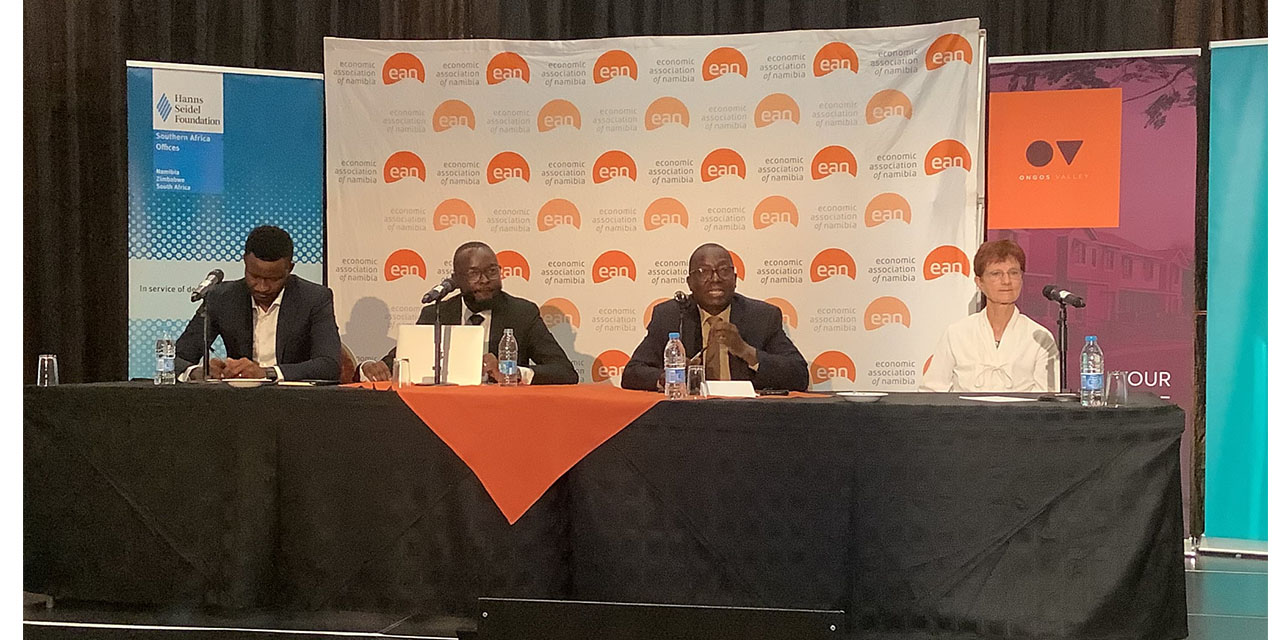Martin Endjala
The Minister of Urban and Rural Development Erastus Uutoni has called on all Namibians to join hands with the ministry in building sustainable affordable houses in the country for particularly the ultra-low income group, rather than leaving it up to the ministry to do everything. Uutoni made this call at the Economic Association of Namibia (EAN) housing symposium today in the capital at Safari Hotel.
Uutoni said that he is aware of the cry from the people and therefore the ministry has embarked on a readiness project that will allow low income earners to pledge the little that they have to acquire homes.
Individuals who can provide financial support to people who need houses are urged do so, by providing capital on the table with other stakeholders and get paid back in installments. “Why can’t we do this, if we are willing, educative, skillful and have the means to do so,” Uutoni asked.
The mass housing project is an initiative that is part of the HPP1 & 2 with the aim to consolidate valuable affordable houses to the ultra-low income Namibians who fall under the earning bracket of around N$2000 to 10 000 dollars.
“These people are often turned down by financial institutes when they approach them for financial loans and so forth, telling them that they do not qualify due to their earnings. How do you turn down someone willing to pay the little that they can? This is why we want to build affordable houses,” Upton said.
The ministry is currently reviewing its land rent control board, which has already been scrutinised by the Attorney General before it is handed to the Cabinet. However, there are some shortcomings in the drafting of the bill, the regulations that are supposed to be in a bill need addressing and further updates will be communicated in course.
The land rent control bill, comes after the demand from the public who felt land owners charged tenants exorbitant rent.
The national urban policy is another element that is also being revisited for amendments.
The building of affordable houses is to provide shelter. “People do not want houses with roofs and tiles and all these fancy things No; we are talking about affordability, a house that will cost you N$ 150 000-200 000, people are more interested in having a roof over their heads”, he emphasized.
Uutoni affirmed that when you give such houses to people, they can develop their houses in due course.
The FNB marketing research manager Frans Uusiku emphasized that in 2017 an average home would cost a person about N$400 000 which was more affordable as compared to today, stressing that there is a need to appropriate an extent of services and research to expose the reality on the ground.
This will not only deal with the housing crises but also the household debt which is at around 69.8 percent on average.
The chairperson of EAN Jason Kasuto, alluded that there already is in place an ecosystem of subsystems of affordable homes averaging at N$500 000, emphasizing the need to find different solutions and look to reimbursing them.
Attendees echoed their frustration around service delivery from the central government and local authorities as one of the reasons that is hampering the progress in the construction of affordable houses in the country and the lack of good affordable materials. Responding to some of the issues raised Moses Matyayi, CEO of the Otjiwarongo municipality cautioned Namibians that, due to the lack of funds given to the local municipal authorities to carry out its duties, it is forced to charge higher rates and taxes in order to provide services to all the residents of its town.
Matyayi gave an example of people living in urban areas such as Ludwigsdorf, who are most likely to pay more rates and taxes in order to provide services to the informal settlements who can’t afford the services.
Another panelist from the National Institute of Town and Regional Planning Francisco Neshila, challenged the municipalities town planning departments, stating that they need to be addressed in order for it to cater for all ultra-low income people and those who earn more.
“Let’s hold hands together and fight and to bring access to house delivery and financial means to focus on working to bring the development needed for the people,” Uutoni concluded.




